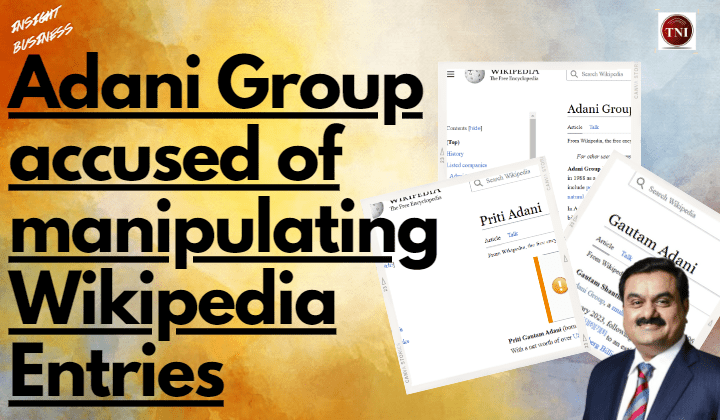In the latest controversy surrounding the Adani Group, Wikipedia editors have accused employees of the Indian multinational conglomerate of manipulating its Wikipedia pages using deceptive methods. The allegations, which come nearly a month after the release of the Hindenburg report, claim that Adani Group used sock puppet accounts and undisclosed paid editors to alter information on its Wikipedia pages in a favorable light.
The accusations by Wikipedia editors raise concerns about the accuracy and neutrality of information available online, especially when it comes to corporate entities. The use of fake accounts and undisclosed paid editors to manipulate information is a violation of Wikipedia’s policies, which prioritize transparency and impartiality.
The Signpost, an independent newspaper associated with Wikipedia, recently published an article alleging that fake accounts manipulated the entries of Adani family members and related businesses on the platform over the past decade. The article was shared by Nate Anderson, the founder of Hindenburg, a US-based company that had previously published a report on the Adani Group. The alleged manipulation involved the use of deceptive tactics to present the Adani Group and its associates in a favorable light.
The article in the publication further read as “Over 40 later banned or blocked sock puppets or undeclared paid editors created or revised nine related articles on the Adani family and family businesses. Many of them edited several of the articles and added non-neutral material or puffery,”
Support Independent Journalism? Keep us live.
As per the report, an editor connected to the Adani Group removed evidence related to conflicts of interest from one of the articles. The newspaper also claimed that some editors used dubious methods to manipulate information on the Adani Group’s Wikipedia pages. One such editor, who was a declared paid editor, used the company IP address to rewrite the Adani Group article. The newspaper also noted that some editors circumvented Wikipedia’s quality control systems to create articles.
The Signpost further reported that Gautam Adani, had his Wikipedia entry edited by 25 fake accounts. The article on Gautam Adani, which was initially created in a straightforward style by a reputable editor in 2007, was edited by three editors who were later blocked or banned as sock puppets or undeclared paid editors by 2012.
In addition to Gautam Adani, the Wikipedia entries of Priti Adani, Karan Adani, and Pranav Adani were also reportedly edited by fake accounts. The use of fake accounts and undisclosed paid editors is a violation of Wikipedia’s policies, which require transparency and impartiality. These allegations raise concerns about the accuracy and neutrality of information available online and highlight the need for greater accountability in the digital age.
Since the release of the Hindenburg report, Adani and its affiliated companies have reportedly lost over $120 billion in market value. The Hindenburg report accused the conglomerate of using tax havens to manipulate stock prices and of having unsustainable debt. These allegations have had significant consequences for Adani and its associated companies, resulting in a substantial drop in their market value. The accusations have also raised questions about the company’s business practices and financial transparency.
The controversy is expected to have far-reaching implications for the conglomerate, which has faced scrutiny and criticism in recent months for its involvement in controversial projects and alleged environmental violations. The incident also highlights the need for greater transparency and accountability in the digital age, where access to information can be easily influenced by vested interests.


Comments are closed.